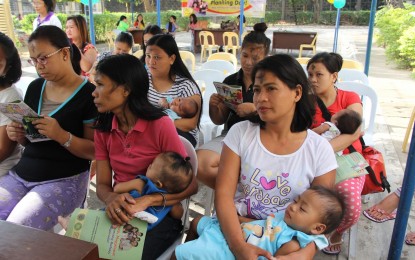
(Photo courtesy of Commission on Population and Development)
MANILA – The Commission on Population and Development (CPD) on Friday urged Filipino couples to observe and be educated about family planning despite the recorded drop of fertility rate in the country in the past few years, especially during the coronavirus disease 2019 (Covid-19) pandemic.
"Our prescription in the Commission on Population and Development is still family planning. The importance of planning when, where, how many ang gusto mong maging anak para makamit mo yung (children you want to have and achieve your) aspirations as a family," CPD Knowledge Management and Communications acting Division Chief Mylin Quiray said during an interview with Bagong Pilipinas Ngayon.
Based on the qualitative study commissioned by CPD to the Philippine Statistical Research and Training Institute, the drop in fertility rate was observed as early as 2017 and 2018 when there was a decline in total registered live births from 1.7 million to 1.6 million, respectively.
The drop was more pronounced in 2020 as only 1.5 million babies were born. The figure dipped further in 2021 to 1.3 million but rebounded in 2022 at 1.4 million.
In the National Capital Region, Quiray said the average fertility rate, at 1.2, is less than the "replacement level" of 2.2, while the general average among all regions is at 1.9.
Replacement level fertility is the level of fertility at which a population exactly replaces itself from one generation to the next.
But some regions, she said, have fertility rates that are going as high as an average of 3, like the Bangsamoro Autonomous Region in Muslim Mindanao.
Quiray said the regions with high fertility rate, as well as others with the lower rates, should be more educated about family planning to achieve the demographic dividend with a higher working age population that can support the dependent population (ages 0-14, and 65 and over).
She urged couples in urbanized regions who tend to prioritize their work more, or to contribute to the economic growth than to start having children, to still observe family planning so they can help increase the country's workforce (aged 15-64) and help support the dependent population (aged 0-14 and the 65 and over).
"Baka naman gusto niyong i-consider, lalo na kung kaya niyo naman (Maybe you want to consider, especially if you're capable) to add to the population, to contribute in the working age population who are healthy, educated, and employed," Quiray said.
The CPD official encouraged them to visit the nearest health center and avail of the free family planning orientation and learn all its modern methods. (PNA)
